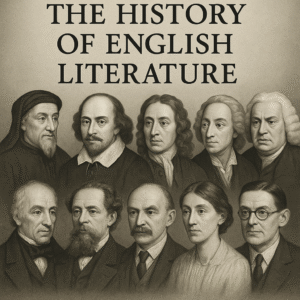Introduction Gordon Bottomley as playwright (1874–1948) holds a unique position. He defied the dominant realism of his time. However, his association with the Georgian literary circle was strong. His greatest contribution was poetic drama. Therefore, his work stands against the Read More …
Category: The History of English Literature

The History of English Literature offers a rich exploration of the development of literary works from the earliest Anglo-Saxon texts to contemporary masterpieces. This category provides in-depth articles, study guides, quizzes, and timelines covering key literary periods such as the Old English era, Middle English literature, the Renaissance, Neoclassical Age, Romantic Movement, Victorian literature, and Modernist innovations. Whether you are a student, researcher, or literature enthusiast, you’ll find detailed analyses of major writers like Geoffrey Chaucer, William Shakespeare, John Milton, Jane Austen, Charles Dickens, and T.S. Eliot. Discover how historical events, cultural movements, and philosophical ideas shaped the evolution of English literature over the centuries. Enhance your understanding of literary techniques, themes, and genres as you navigate through the fascinating journey of English literary history. This resource is ideal for exam preparation, academic research, and anyone passionate about the legacy of English literary traditions.
James Elroy Flecker as Poet: Edwardian and Georgian Voice
Introduction James Elroy Flecker as Poet holds a vital place. Joseph Herman Flecker (1884–1915), who later adopted the name James Elroy, died tragically young of tuberculosis in Davos, Switzerland. He belonged to the pre-war period. However, his early verse was Read More …
Edmund Blunden as Poet:The War-Shadowed Georgian Pastoralist
Introduction Edmund Blunden as Poet holds a vital place. Blunden (1896–1974) served in World War I. He survived the Western Front fighting. Blunden as Poet is a War Poet. His early style showed Georgian roots. The Georgian period spanned 1910 Read More …
Lascelles Abercrombie as Poet-The Georgian Period
Introduction The figure Lascelles Abercrombie as Poet occupies a pivotal, though often overlooked, position in early 20th-century literature. Initially, his work emerged from the romantic impulse, but it quickly acquired a philosophical depth that transcended mere lyricism. Consequently, he became Read More …
Siegfried Sassoon as Poet: The Modernist Period
Introduction Siegfried Sassoon as Poet reflects a profound shift in 20th-century literature. Initially, his verses mirrored the gentle, romantic style of the Georgian poets. However, the harsh reality of the First World War transformed his voice from lyricism to searing, Read More …
Robert Graves as Poet: War, Myth, and the Muse
Introduction Robert Graves as poet reflects originality, boldness, and lyrical grace. His verses reveal the conflict between modern experiences and ancient traditions. He absorbed classical myth while confronting contemporary war trauma. Therefore, his poetry balances history with modern sensitivity. Moreover, Read More …
Wilfrid Wilson Gibson as Poet-The Georgian Period
1. Introduction to Wilfrid Wilson Gibson Wilfrid Wilson Gibson, born in 1878, emerged as one of the leading Georgian poets. Consequently, his work stood apart because he embraced simplicity strongly. Furthermore, he avoided complexity in his themes clearly. Therefore, he Read More …
Harold Monro as Poet-The Georgian Period
Introduction Harold Monro as Poet was a crucial figure always. Consequently, he strongly influenced the Georgian era. Furthermore, he defined the movement’s shape clearly. Therefore, he acted as a central organizer often. Moreover, Monro founded the Poetry Bookshop effectively. In Read More …
Ralph Hodgson as Poet-The Georgian Period
Introduction Ralph Hodgson as poet was crucial to the Georgian era. Consequently, he contributed significantly to the movement. Furthermore, his early work gained swift attention. Therefore, many critics praised his unique voice. Moreover, Hodgson published few collections overall. In addition, Read More …
John Drinkwater as Poet-The Georgian Period
Introduction John Drinkwater as poet shaped early 20th century British literature. His work reflects clarity, rural imagery, and gentle reflection consistently. Moreover, he integrated Georgian ideals with subtle personal insight. His poems balanced moral depth, lyrical harmony, and observational skill. Read More …
